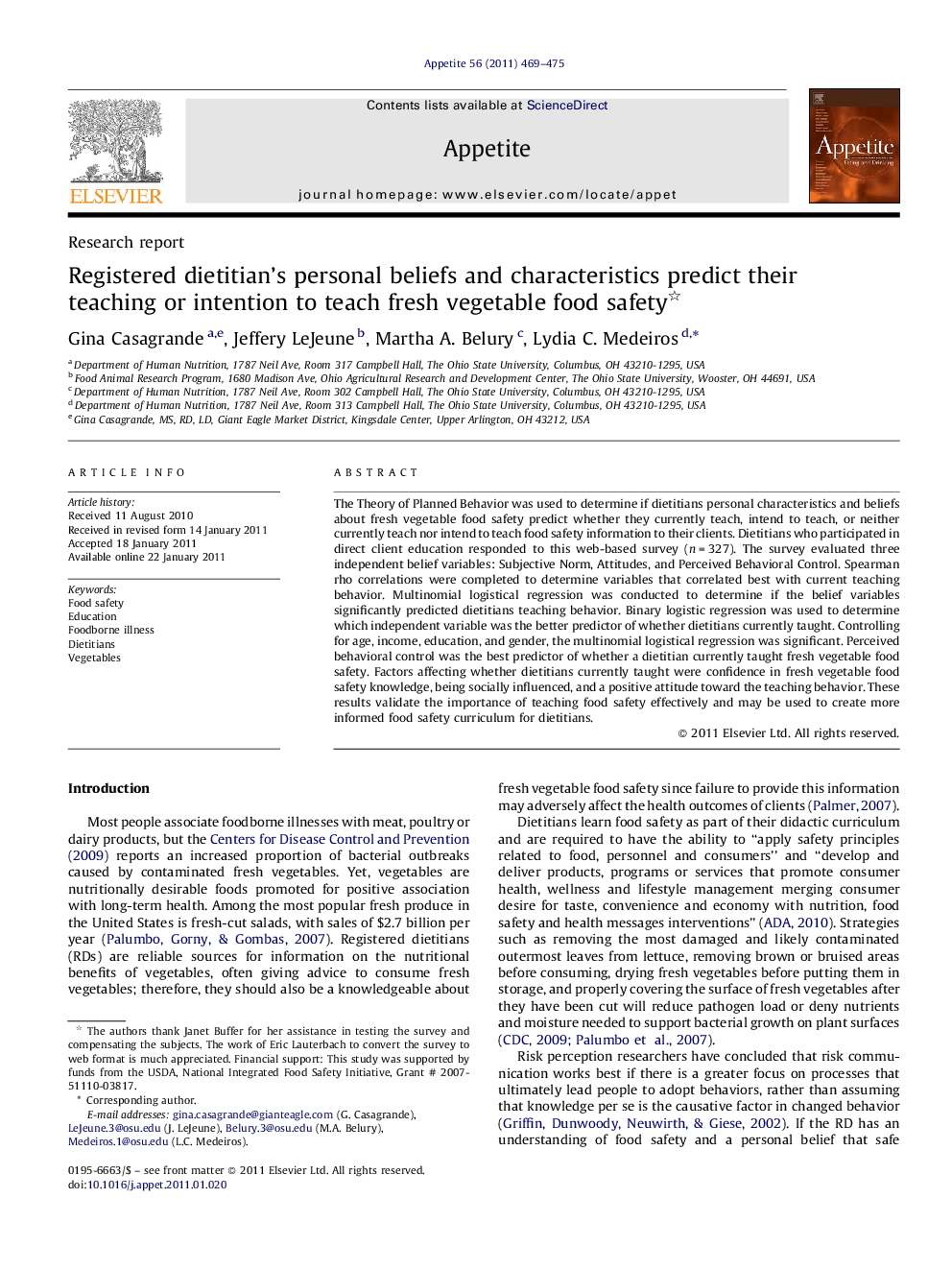| Article ID | Journal | Published Year | Pages | File Type |
|---|---|---|---|---|
| 939866 | Appetite | 2011 | 7 Pages |
The Theory of Planned Behavior was used to determine if dietitians personal characteristics and beliefs about fresh vegetable food safety predict whether they currently teach, intend to teach, or neither currently teach nor intend to teach food safety information to their clients. Dietitians who participated in direct client education responded to this web-based survey (n = 327). The survey evaluated three independent belief variables: Subjective Norm, Attitudes, and Perceived Behavioral Control. Spearman rho correlations were completed to determine variables that correlated best with current teaching behavior. Multinomial logistical regression was conducted to determine if the belief variables significantly predicted dietitians teaching behavior. Binary logistic regression was used to determine which independent variable was the better predictor of whether dietitians currently taught. Controlling for age, income, education, and gender, the multinomial logistical regression was significant. Perceived behavioral control was the best predictor of whether a dietitian currently taught fresh vegetable food safety. Factors affecting whether dietitians currently taught were confidence in fresh vegetable food safety knowledge, being socially influenced, and a positive attitude toward the teaching behavior. These results validate the importance of teaching food safety effectively and may be used to create more informed food safety curriculum for dietitians.
► Theory of Planned Behavior used to frame study. ► Dietitians surveyed about teaching food safety. ► Monomial logistical regression was significant. ► Knowledge, social influence, and positive attitude best predictors. ► Results may be used food safety curriculum for dietitians.
